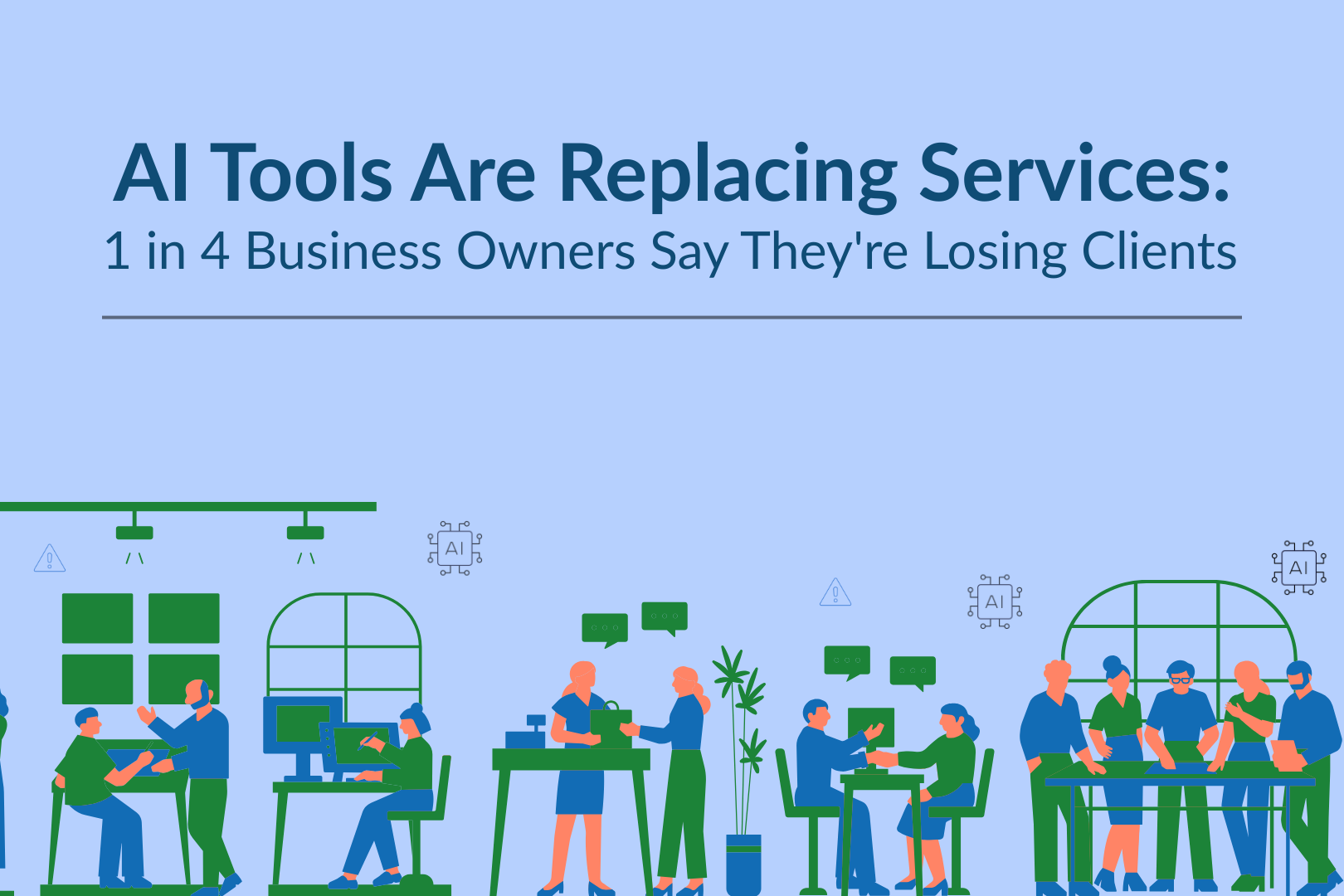
AI Tools Are Replacing Services: 1 in 4 Business Owners Say They're Losing Clients
In a new survey of 1,000 Americans, business owners revealed a complex relationship with artificial intelligence. While many see opportunity in AI’s potential, others are grappling with the challenges it creates, from lost revenue and eroded trust to hard questions about authenticity and accountability.
As AI reshapes the small business landscape, entrepreneurs are learning to adapt, stay competitive, and use automation without losing the human touch that defines their work.
Key Findings:
- 25% of business owners have lost business in the last year because customers used AI tools instead of paying for their service.
- 65.5% of business owners worry that AI will make their business feel less personal or authentic to customers.
- 54% of small business owners making $150,000+ say AI could help most right now in customer support.
- 20% of Gen Z business owners are very worried about AI-driven misinformation affecting their customers or their brand.
- 50% of senior managers refuse to hand over hiring or performance decisions to AI.
- 46% of small business owners said AI could help their business most right now in marketing content.
When AI Becomes the Competition: 1 in 4 Business Owners Report Losing Clients to DIY Tech
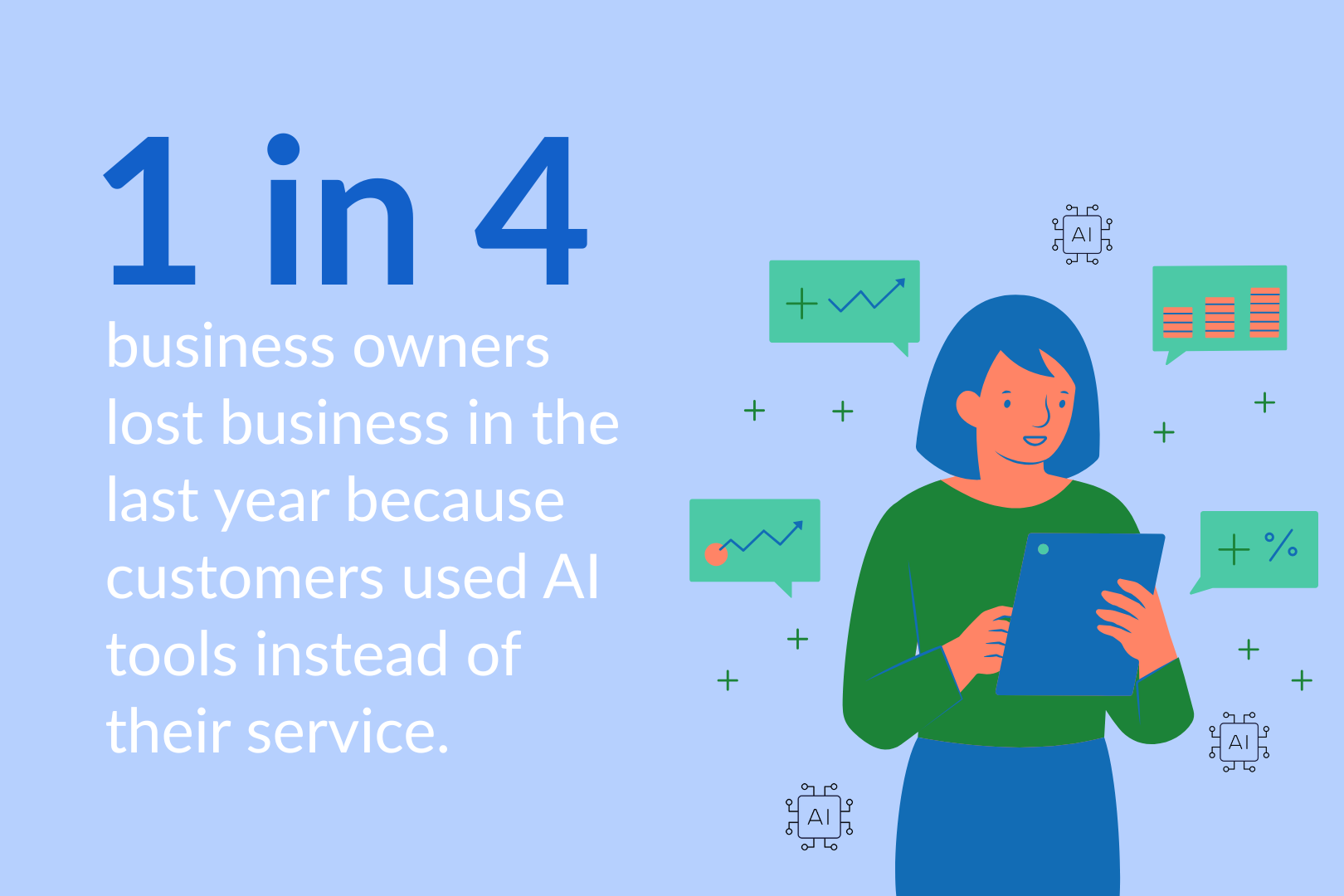
In a study we conducted, 25% of business owners reported that they had lost business over the past year as customers turned to AI tools instead of paying for their services.
The same DIY mindset that once fueled YouTube tutorials is now powered by AI. Instead of searching for how to design a logo, consumers are typing generate me a logo into an AI prompt box. These tools deliver near-instant results, and that convenience often outweighs the value of expertise.
Rather than seeing AI as a threat, many entrepreneurs are responding with creativity and resilience. They’re emphasizing the expertise, judgment, and human connection that machines can’t replicate and, in many cases, integrating AI into their own processes to stay competitive.
This disruption is also an opportunity for innovation, as business owners learn how to coexist with the same technology that’s reshaping their industries.
Balancing Tech and Trust: Business Owners Aim to Keep AI Human
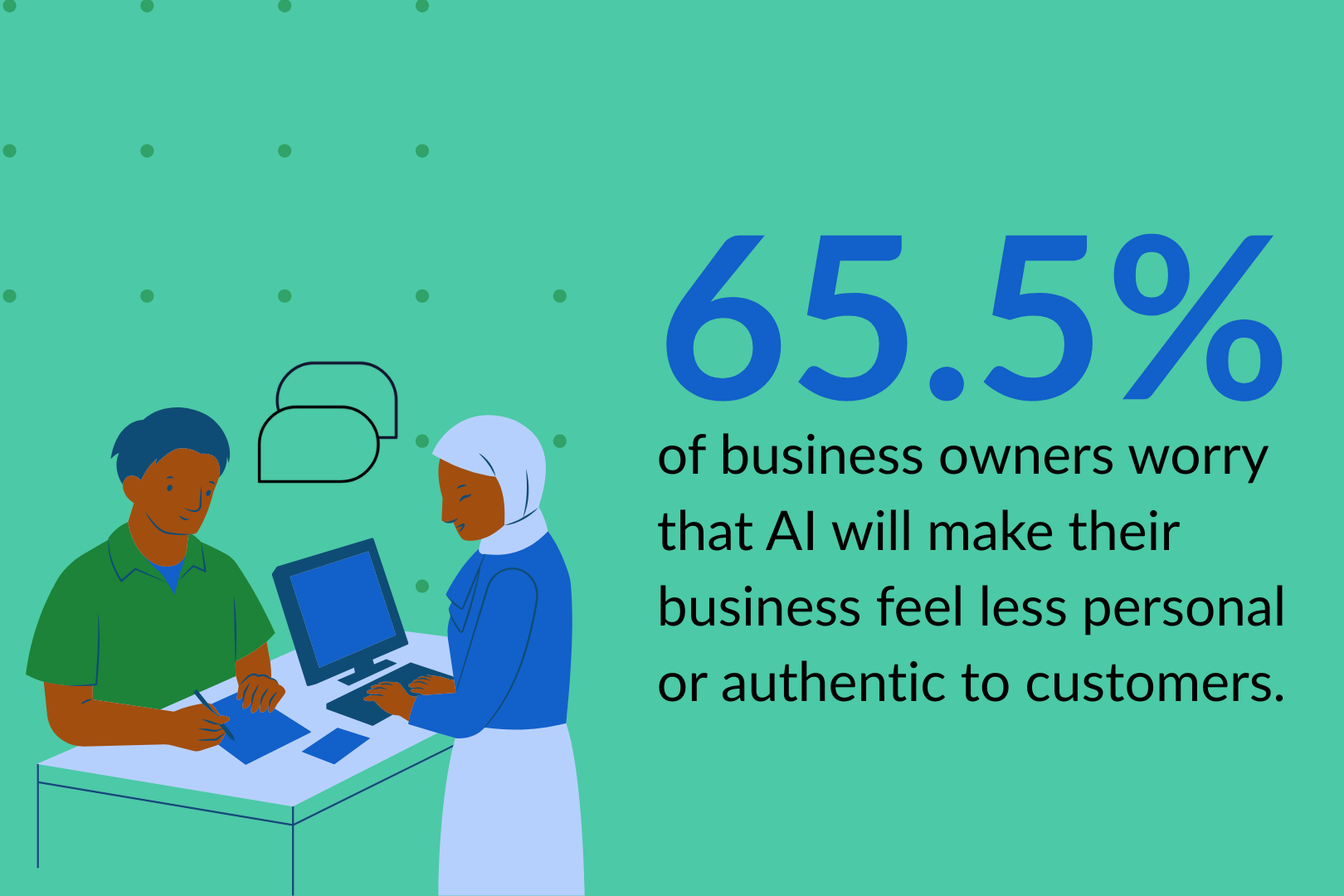
As AI becomes more integrated into daily operations, our survey shows that 65.5% of business owners share a common concern: that relying too heavily on AI could make their business feel less personal or authentic to customers.
For small and mid-sized businesses, authenticity is their edge. They’ve built loyal followings through relationships, personal service, and genuine connection, things an algorithm can’t reproduce. And, as consumers grow more fatigued by AI-generated content, many can spot it instantly and interpret it as lazy or impersonal.
Instead of rejecting automation entirely, business owners are learning to find the right balance, using AI to support, not replace, their brand’s personality. Whether it’s customizing communications, keeping real people in customer-facing roles, or using AI tools for efficiency behind the scenes, the goal is the same: stay innovative without losing trust.
Marketing Makeover: Nearly Half of Small Business Owners Turn to AI for Content Support
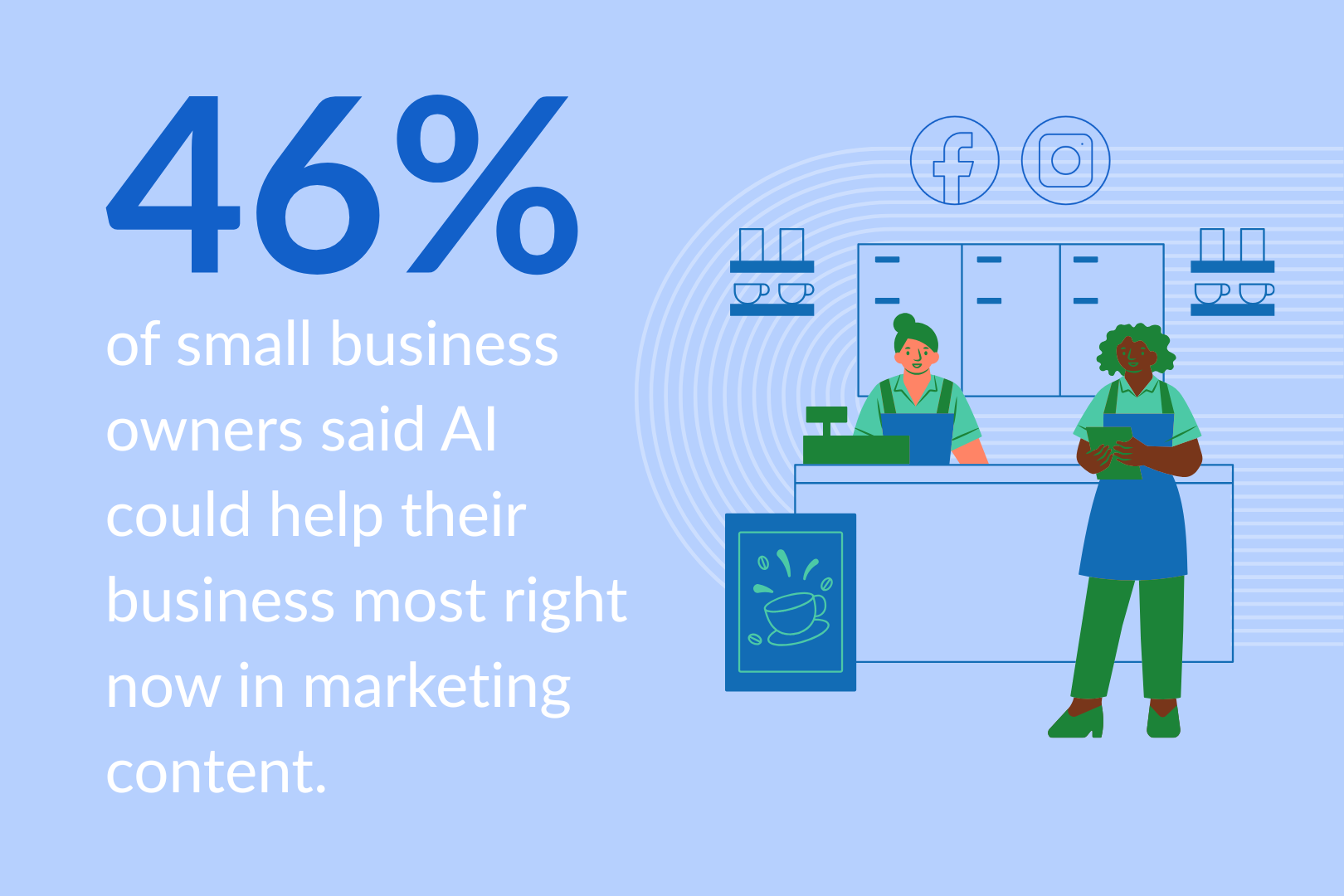
In our survey, 46% of small business owners said AI could help their business the most right now in the area of marketing content.
From social media posts to blog copy and email campaigns, entrepreneurs see AI marketing tools as a powerful way to save time and boost visibility. Many small business owners wear multiple hats, and content creation often slips through the cracks. Generative tools help close that gap, allowing owners to maintain consistency and creativity without hiring an agency.
For many, AI has become a creative partner, not a replacement. What once took hours now takes minutes, freeing up time to focus on growth, strategy, and customer relationships. And when it comes to printed collateral, business owners continue to invest in marketing materials that help their brands stand out in a crowded market.
High Earners, High Expectations: The Customer Service Revolution Happening Behind the Scenes
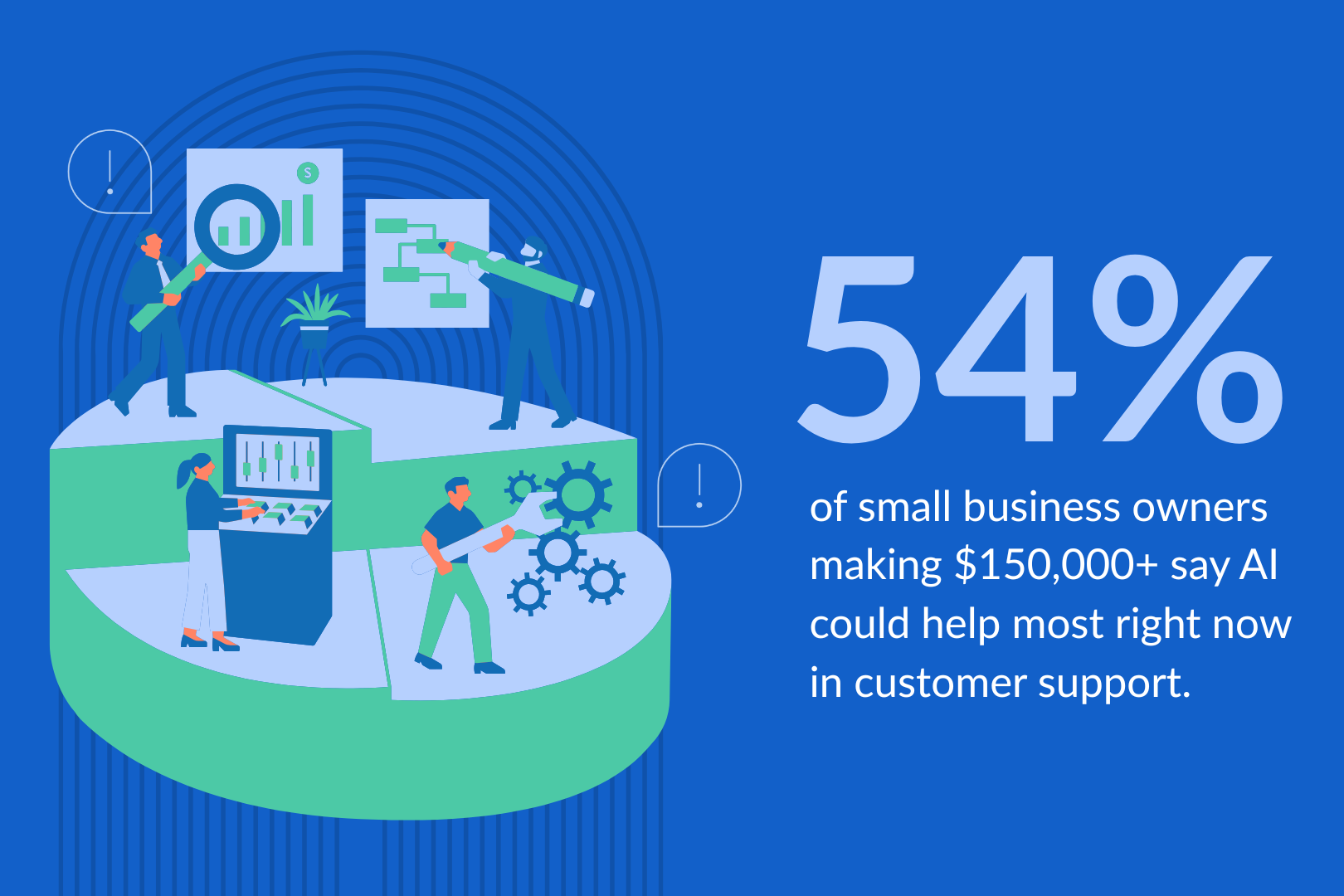
Among higher-earning business owners, those making $150,000 or more, more than half say AI could make the biggest difference in customer support.
Once a business scales, the demand for fast and consistent communication skyrockets. AI-powered chatbots and assistants are helping small teams deliver 24/7 responsiveness without increasing headcount. It’s not about replacing people, it’s about improving the customer experience.
By automating FAQs and streamlining routine requests, business owners are freeing up human staff to handle complex, high-touch interactions. The result is faster responses, happier customers, and a support system that grows intelligently.
Gen Z Business Owners Voice Concern Over AI and Misinformation
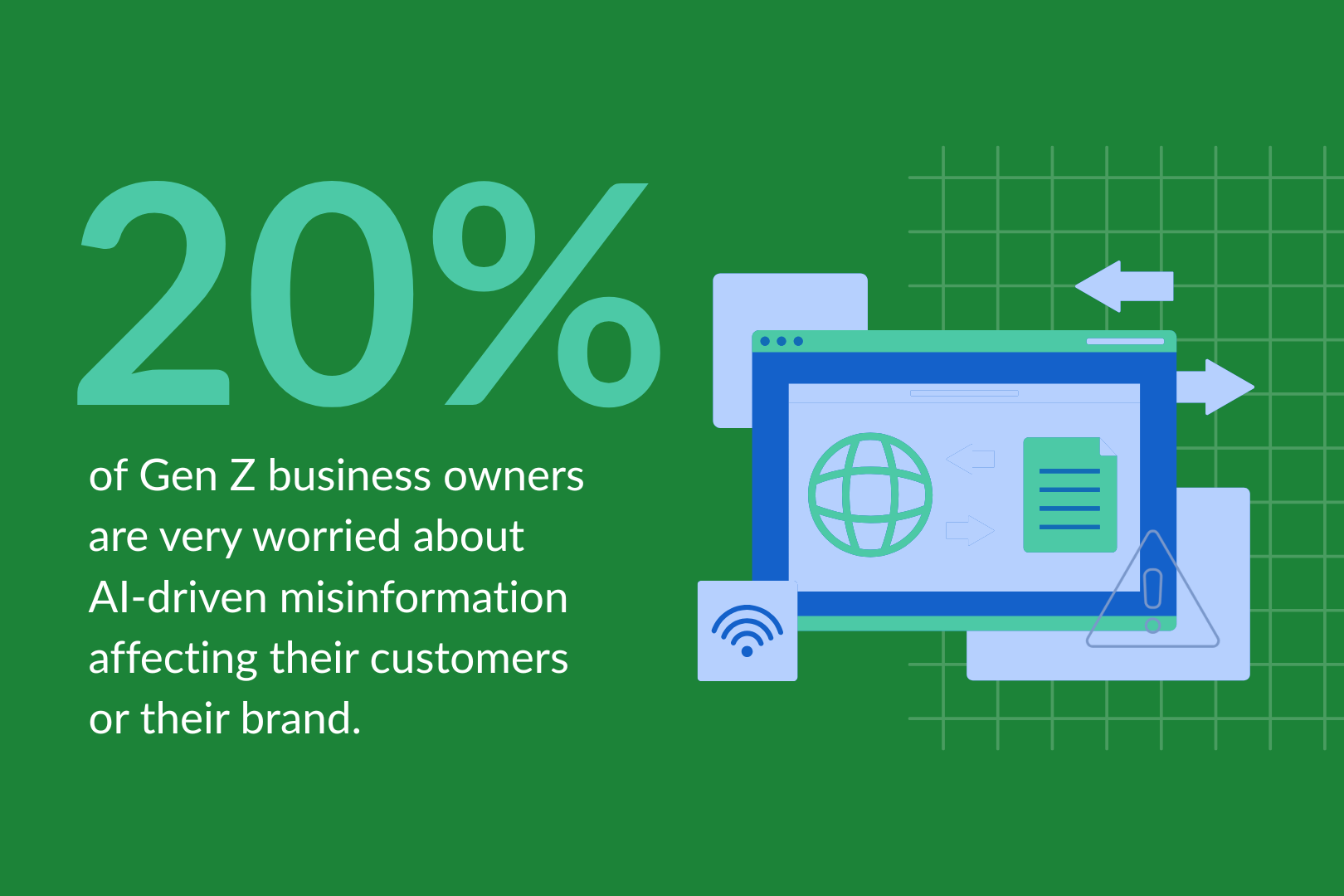
Not every business owner sees AI as an advantage. One in five Gen Z entrepreneurs say they’re very worried about AI-driven misinformation and its potential impact on their customers and brand reputation.
This generation grew up online through the rise of fake news, deepfakes, and algorithmic distortion. They’ve seen firsthand how fast misinformation spreads and how hard it is to undo once it’s out there. For them, brand credibility is fragile, and AI represents both power and risk.
Rather than chasing speed or automation, Gen Z founders are taking a slow-and-steady approach to authenticity, prioritizing transparency and oversight. They know being mistrusted is worse than being out-marketed, and they’re building brands designed to earn belief, not just clicks. That includes leaning into the parts of business AI can’t automate, like unique packaging and other tangible brand touchpoints that make their products memorable.
Leaders Draw the Line: Senior Managers Keep the Human Touch in Hiring
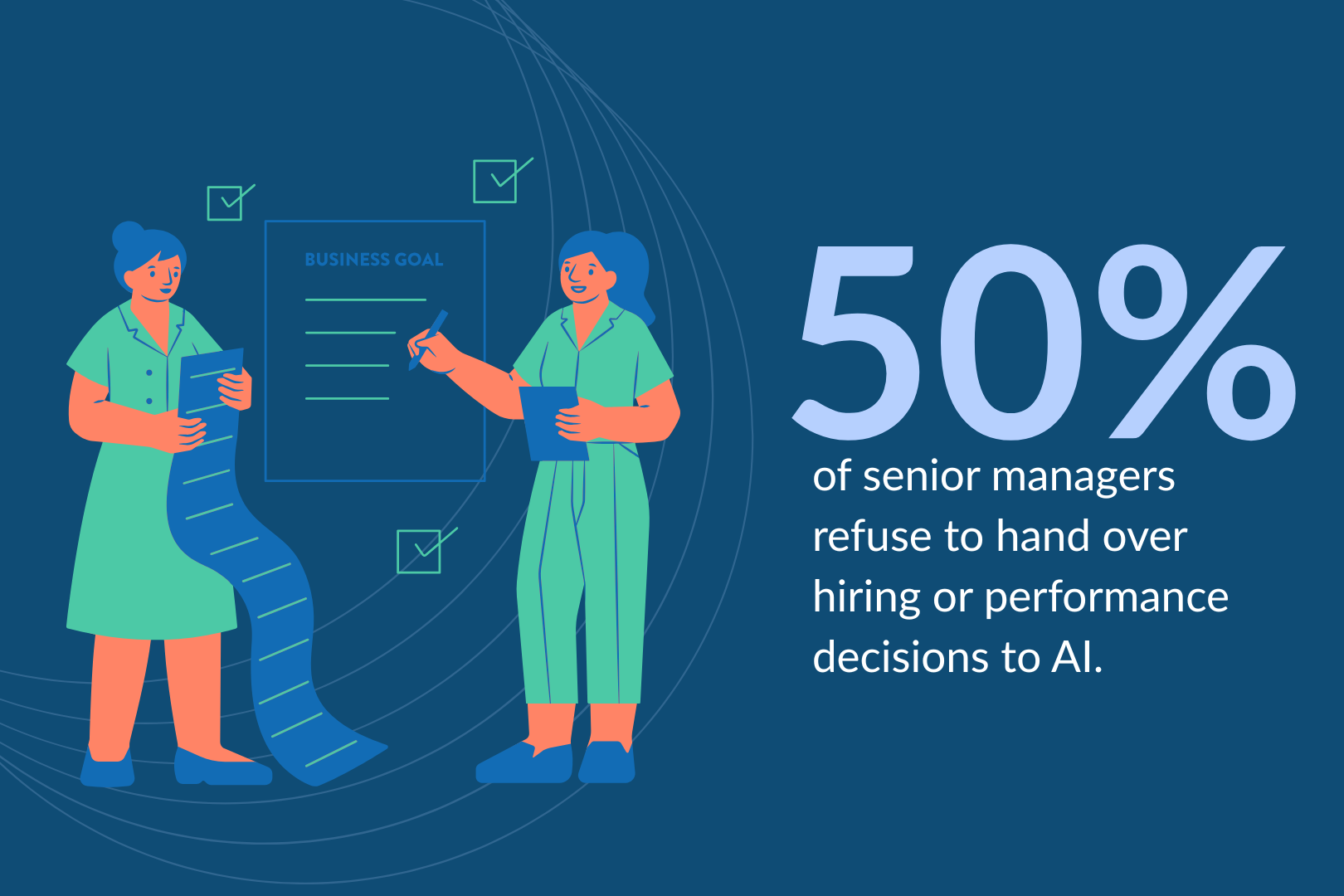
According to our survey, 50% of senior managers are firmly against handing over hiring or performance decisions to AI, a sign that human judgment still matters most where people are concerned.
They’ve seen the consequences of biased algorithms in hiring and performance reviews, and they’re wary of letting automation decide who gets hired, promoted, or let go. For these leaders, people management is about empathy and context, not data points.
They’re not anti-AI, they’re pro-accountability. As automation advances, many are choosing to keep the final say human, ensuring fairness, trust, and company culture aren’t casualties of convenience.
Summary
As our study shows, business owners across industries and generations are thinking critically and creatively about how to make AI work for them without losing what makes their businesses unique.
While the technology presents new challenges, it’s also unlocking fresh opportunities to connect, grow, and serve customers in smarter, more meaningful ways. Whether they’re drawing firm boundaries or diving in with curiosity, today’s entrepreneurs are leading with intention.
In the face of rapid change, they’re proving that the future of business isn’t just about artificial intelligence, it's about human resilience, adaptability, and heart.
Methodology
To understand how Americans approach artificial intelligence in small businesses, we surveyed 1,000 adults across the country via Pollfish, including a sample of small business owners, managers, and entrepreneurs from a wide range of industries. Participants answered a series of questions about how AI is affecting their work, the challenges they are facing, and the areas where they see the most opportunity. Responses were analyzed by demographic groups to identify trends and differences across age, income level, and job role.
Fair Use
Users are welcome to utilize the insights and findings from this study for noncommercial purposes, such as academic research, educational presentations, and personal reference. When referencing or citing this article, please ensure proper attribution to maintain the integrity of the research. Direct linking to this article is permissible, and access to the original source of information is encouraged.
For commercial use or publication purposes, including but not limited to media outlets, websites, and promotional materials, please contact the authors for permission and licensing details. We appreciate your respect for intellectual property rights and adherence to ethical citation practices. Thank you for your interest in our research.



